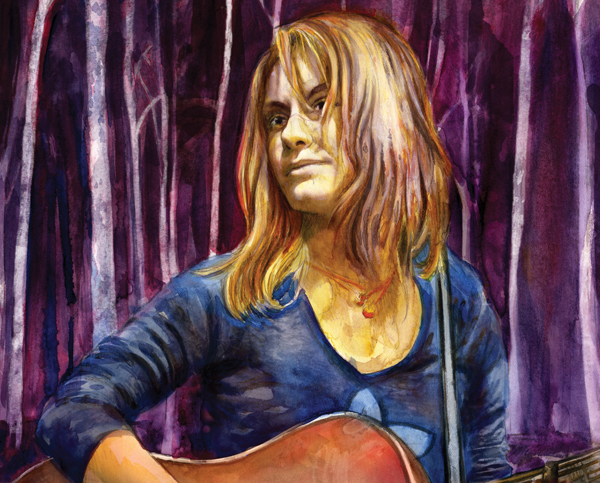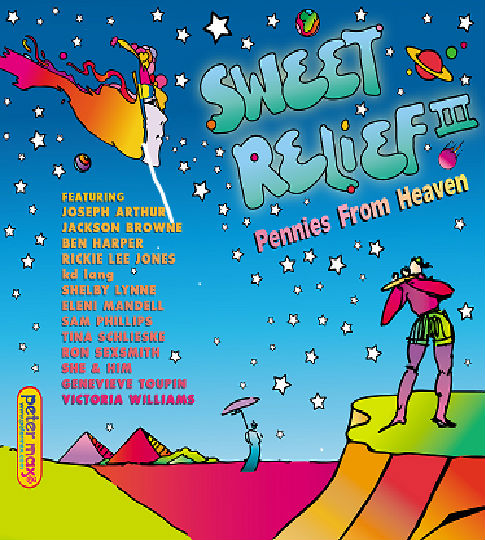Videos by American Songwriter
Tears, Lies & Alibis
(EVERSO RECORDS)
[Rating: 4.5 stars]
Shelby Lynne took a long time to connect with her muse. But when she finally did, and shouted it out in 2000 with the musical announcement I Am Shelby Lynne, she was answered with a Grammy.
Though she had the audacity to point out the irony of winning Best New Artist after six albums, even she knew she had not hit her stride until releasing that disc.
And even though its follow-up, Love, Shelby, fell into what might be considered a post-break-out sophomore slump, Lynne continued to build on that connection with Identity Crisis and Suit Yourself, till she reached rock-solid brilliance with 2008’s Just a Little Lovin’, her homage to a major influence, Dusty Springfield.
She maintains that foothold with Tears, Lies & Alibis, her maiden release on her own label, Everso Records (spawned from a disagreement with her last label, Lost Highway, which apparently didn’t approve of her plan to self-produce, though she’s done it before). It’s a beautifully understated album of personal confessions, wandering thoughts and worldly observations, all rendered with the assurance of a naturally gifted vocalist, one who clearly has no need for auto-tune or other irritating tonal tampering devices.
Lynne allows these 10 songs to unspool slowly, letting them move with the unhurried pace of the Southerner she is (despite her California address, she’s still an Alabama girl at heart). She also expands on the territory she so lovingly covered on Just a Little Lovin’—an album that made so much sense for a girl with Muscle Shoals in her veins. It’s a testament to her artistic integrity that she didn’t try to do another version of it.
But then again, even another full disc of Springfield numbers wouldn’t have been a bad thing, provided she could avoid falling into the trap of imitation. It hasn’t been an issue so far, and on the track, “Why Didn’t You Call Me,” she manages to revisit both a familiar theme (the phone as a major player in relationships) and that bluesy soul vein she mined from Dusty in Memphis without sounding derivative or repetitive. It’s oh, so smooth—and at one minute and 40 seconds, short and sweet. (The whole album—all 10 tracks—clocks in at 35 minutes.)
Her Dusty-esque show-stopper, though, is the slow-burning third track, “Like a Fool.” With simple lyrics and spare instrumentation, she conveys so much elemental pain, minus the pity-me angst that often drags down lovelorn ruminations. It flows seamlessly into another knockout cut, “Alibi,” in which she spins anger and melancholy into more silk. “I know you’ve been staying out late,” Lynne sings. “I hear you when you come in. I pretend to be sleeping so we don’t have to act like friends.” It is, for better or worse, behavior that just about anyone in a troubled relationship has experienced, from one side of those eyelids or the other.
As it turns out, she’s got a sure hand at the controls. The production on this song is almost stark—just her vocals, some quiet drumming and a guitar that doesn’t sound quite in tune. The imperfection lends even more authenticity and charm to this gorgeous piece of heartache.
Lynne sets the album’s tone with the opener, “Rains Came,” a deceptively upbeat, poppy tune in which layers of her satiny vocals are caressed by Randy Leago’s bass clarinet fills. The woodwind’s deep throat adds a little gravity—a necessary touch to match the bout of depression she so vividly describes in little details like “sleeping in a chair … body rolled up in a ball” and “shuffled my feet on the floor/stopped, opened the door.” Those cleansing rains—a rarity in the desert—inspire the admission, “The dark side of me/seems to like how it feels when it’s pouring.” The fact that the song doesn’t sound dark at all is part of what makes it so intriguing.
The mood is more pensive elsewhere. Even “Something To Be Said (About Airstreams),” her love poem to “a rolling home made out of silver”—which she likens to “a Van Gogh or an old Picasso” (and in which she manages to pull off the lines, “Aww who’da thought art was a trailer” and “maybe I’ll stop in Needles/say hello to my people”)—is slightly sad. And it may be a song about silver, but the lines, “I want me a big ol’ Cadillac/to haul all my demons and dreams and/listen to silence” are pure gold.
Lynne lets off some pent-up steam in “Family Tree,” the angriest song on the album. With guitar playing so hard and nasty it seems as if it’s meant to hurt, she seethes, “Just ‘cause you’re kin, I let it slide/insults and judgments I’ve been blind/and it’s hard for you to deal out digs/with a calloused heart your words are quick/I’m sick and tired of throwing stones/‘cause all that leaves is broken bones/and I won’t shed no blood for you/ Aww, the cut’s too deep, the bruise too blue/When you lay down and think of me/there won’t be much serenity/Just know that the aching in your brain/is the sound of your soul’s grief and pain.” Then she declares with make-no-mistake finality, “This apple’s done fall off the family tree.” At whom this venom is directed, we have no idea. Of course, we wonder. Her sister, Allison? The father who killed her mother in front of his teenage daughters before turning the gun on himself? But she won’t tell us, and maybe she shouldn’t. For as much as we like to think she’s revealing herself in her lyrics, the truth is, Lynne’s cloaking much more than she’s exposing.
Regardless of the target, when the banjo kicks in and she harmonizes with herself on the last line, it really sends home her message—and renders a song with serious staying power, the kind other artists (say, the Dixie Chicks) might interpret in equally compelling ways.
“Loser Dreamer,” a “Fool on the Hill”-like ballad, is a sweet tribute of sorts to those of us who can’t help tilting at windmills. It floats with an ethereal, Daniel Lanois-ish steel guitar line (though it’s not his fingers manning the strings here, it’s Ben Peeler), but the feel is not at all feathery or lightweight—just wistful, and maybe a little yearning, despite the line, “What he don’t want, he ain’t missing.”
John Jackson’s dobro haunts “Old #7” (“Please help me, make it a double”) as well. Lynne, who makes no secret of her earthy side, introduced the song at a South By Southwest performance in Austin with the declaration, “I spent a lot of years drinkin’ whiskey. I’m gonna spend a lot more years drinkin’ whiskey.”
Yeah, tears, lies and alibis. Whiskey’s a great facilitator for all three—and can be a great facilitator for writing about all three, too. Perhaps it was the impetus for the album’s longest cut (and shortest lyrics), “Old Dog,” which has some killer blues pickin’, and carries the primal energy of a murder ballad.
Lynne wraps it up with “Home Sweet Home,” which contrasts the weariness of the road with the sweet anticipation of landing where you belong at last. With her own label and a batch of songs that fit like a favorite pair of slippers, maybe she’s finally found that place.











Leave a Reply
Only members can comment. Become a member. Already a member? Log in.